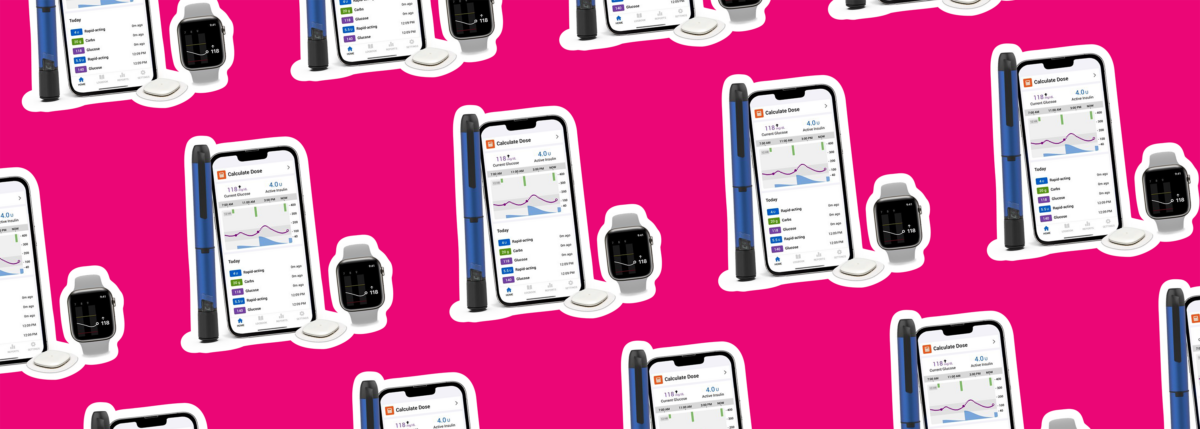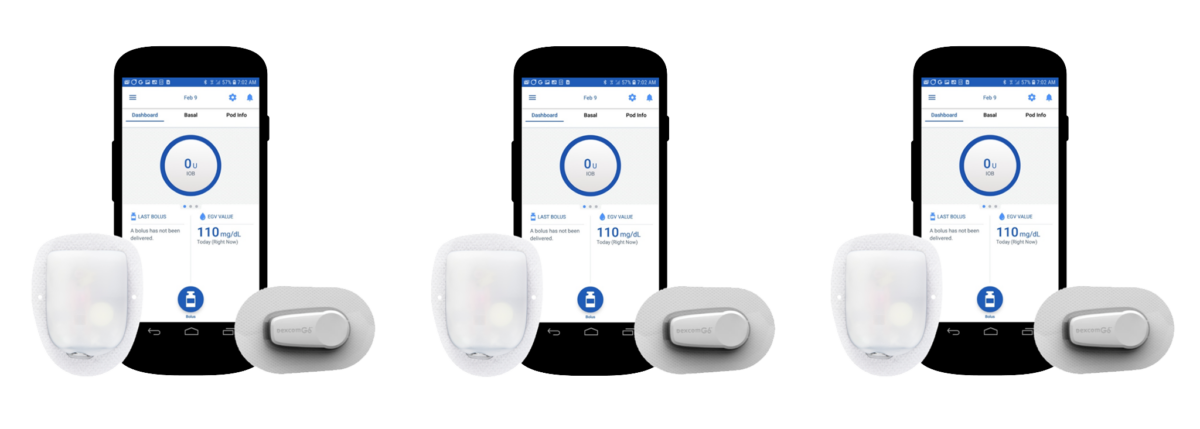A Year in Review: Advancements in Diabetes Tech + Research
Written by: BT1 Editorial Team
4 minute read
June 27, 2023
Session: ADA Symposium—Major Advances and Discoveries in Diabetes: The Year in Review
Speakers at this ADA Scientific Sessions presentation included: Chaired by Rodica Busui, MD, Ph.D. (University of Michigan) and President of Medicine & Science for the American Diabetes Association, John B. Buse, MD, Ph.D. (Senior Associate Dean, Clinical Research University of North Carolina School of Medicine and Director of the UNC Diabetes Care Center), Anath Shalev, MD (Division of Endocrinology, Diabetes and Metabolism, University of Alabama at Birmingham), and Michael Schwartz, MD (University of Washington Medicine, Diabetes Institute).
This panel of experts presented the highlights in clinical science in the last year and how they will translate into care for people with diabetes. Here are a few exciting advancements that people with diabetes can start talking to their providers about now!
Food and Drug Administration (FDA) approvals
Dr. Buse emphasized that there were a lot of FDA approvals this past year for the treatment of type 1 diabetes (T1D) and type 2 diabetes (T2D).
The FDA approved the drug teplizumab. This drug targets and manages stage two of T1D, which is a little-known phase before T1D can be detected (pre-clinical phase) and before blood sugar levels are consistently high.
Teplizumab can delay the onset of T1D and the need for insulin therapy—if started before diagnosis.
The FDA also approved several new insulin pump systems with automated insulin delivery features (AID). These systems are revolutionizing care and are allowing people with T1D and T2D to manage blood sugar levels better than ever before.
Systems recently approved include Insulet’s Omnipod 5, Medtronic’s 780g, and the iLet Bionic Pancreas.
Most strikingly, Dr. Buse was impressed with the FDA’s approval of an open-source AID system, Tidepool. This was the first ever community-led diabetes innovation to be approved by the FDA— with the ability for users to dose insulin directly from an app on their phones.
The FDA approved continuous glucose monitoring (CGM) systems, including the long-awaited Dexcom G7, which has a much shorter warmup time of 30 minutes compared to two hours with the G6.
Also of note was the approval of biosimilar insulins, including Rezvoglar, which received its interchangeability designation in late 2022 (can be used interchangeably with Lantus), and the 5th SGLT-2 inhibitor, Brenzavvy (Bexagliflozin) was also approved by the FDA.
Sotaglifozin was also approved to prevent cardiovascular death and hospitalization for heart failure in patients with heart failure with or without type 2 diabetes.
Progress on newer medications
Dr. Buse noted that many medications are not quite ready for the market yet, but much progress has been made—including progress on once-weekly insulin for people with T2D.
Strikingly, Jardiance is being investigated as a treatment for chronic kidney disease (CKD) and to help improve heart health in people with diabetes.
Dr. Shalev talked about the translation of technological and therapeutic advances into care for people with T1D and talked about the common drug Verapamil.
Verapamil has been shown to increase the pancreas’s insulin secretion in children with newly-diagnosed T1D. Verapamil also limits the total daily insulin needed to maintain blood sugar levels in range and also decreases hypoglycemic events, with no severe adverse side effects reported.
Verapamil continues to offer significant benefits to people using the medication even after 2 years. Verapamil combined with metformin for people with type 2 diabetes is being investigated.
A holistic approach to diabetes care
There has been a great emphasis on whole-body care and not just focusing on blood sugar levels, especially for people with T2D.
Over the past year, researchers are starting to look more at sleep health, along with weight management, cardiovascular and renal health to improve the overall quality of life for people with diabetes.
In alignment with a more holistic approach to diabetes management, the American Diabetes Association (ADA) lowered its blood pressure and lipids target—to sync with other diabetes advocacy organizations.
Dr. Schwartz emphasized the need to target the brain and body in the treatment of diabetes. He presented new insights into the neuroscience of metabolism and viewed the weight loss efficacy of incretin medications from the “neuroscience of energy homeostasis” perspective.
Advancements in coverage + access
Dr. Buse mentioned one of the biggest wins of the year was the reduction in insulin pricing in the United States, and notably, the voluntary price caps announced by all three insulin manufacturers. These changes will have remarkable effects on health equity in the coming years.
One of the biggest advancements in access to care for people with diabetes was the Medicare coverage eligibility change, making CGMs available for all insulin-dependent people (T1D and T2D) and those who have recurrent hypoglycemia.
State Medicaid programs are also expanding CGM coverage; legislation was just signed in Florida that would expand coverage to Medicaid people with diabetes in the state.
The challenges we still face
Dr. Buse said the biggest challenges of the past year were the semaglutide (Wegovy and Ozempic) and tirzepatide (Mounjaro) shortages and health equity issues over the expense of these medications.
He also emphasized that we need more research on the efficacy of GLP-1 receptor agonist medications for people with T1D.
Finally, the researchers said there needs to be greater equity in the delivery of healthcare across many realms: socioeconomic status, gender, race, sexuality and disability.
We have to focus on policy and practice at the community and system level to make sure these tools and new discoveries in medicine are implemented equitably for all people living with diabetes.
People with diabetes deserve to experience normal life expectancies without advanced complications.
These advancements in medications and technology are all very exciting for the diabetes community. At Beyond Type 2, we’re committed to following these advancements to keep the community informed, so make sure to sign up for our newsletter and follow our news coverage!

Author
BT1 Editorial Team
This piece was authored collaboratively by the Beyond Type 1 Editorial Team.
Related Resources

On November 20, 2024, Medtronic received FDA clearance for its latest InPen app. This advancement...
Read more

Eli Lilly and Company is helping patients and caregivers understand important changes to Medicare Part...
Read more

Already compatible with Dexcom’s G6 and G7 continuous glucose monitors (CGMs), the Omnipod 5 Automated...
Read more

